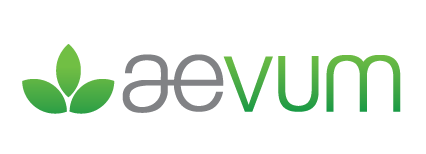Rotator Cuff Injury And How Aevum Health Can Assist
Rotator cuff injuries are common. This is probably the most common shoulder injury we see. Most of these injuries can be managed conservatively, i.e. without surgery, if there hasn't been too much damage and if you haven't left the shoulder injury for too long before seeing your Physio. Our first goals are to restore function, reduce pain and avoid surgery. Here's what you need to know.
About Rotator Cuff Injury and Surgery
You may require surgery if the tissue cannot be managed with an appropriate physiotherapy program. Shoulder rotator cuff surgery is a surgical procedure to repair a damaged rotator cuff. The rotator cuff is a group of four muscles and tendons that attach the upper arm bone (humerus) to the shoulder blade (scapula), and it is responsible for allowing the shoulder to move and rotate.
There are several different types of shoulder rotator cuff surgery. The specific surgical technique used will depend on the individual patient's condition and the extent of the damage to the rotator cuff. In general, however, the following steps are involved in shoulder rotator cuff surgery:
Anesthesia: Before the surgery begins, the patient will be given general anesthesia to make them unconscious and pain-free during the procedure.
Incision: The surgeon will make an incision in the shoulder to access the rotator cuff. The size and location of the incision will depend on the specific type of surgery being performed.
Repairing the rotator cuff: Once the rotator cuff is accessible, the surgeon will repair the damaged tendons and muscles. This may involve stitching the tendons back together, removing damaged tissue, or reattaching the tendons to the bone.
Closing the incision: Once the rotator cuff has been repaired, the surgeon will close the incision using stitches or surgical staples.
Post-surgery care: After the surgery, the patient will be taken to a recovery room to be monitored. They may need to wear a sling to immobilize the shoulder and allow the rotator cuff to heal. Physical therapy may also be recommended to help the shoulder regain strength and range of motion.
Overall, shoulder rotator cuff surgery is a complex surgical procedure that is performed to repair a damaged rotator cuff. The specific surgical technique used will depend on the individual patient's condition and the extent of the damage to the rotator cuff.
How Can Aevum Physiotherapy Help?
Physiotherapy can be an effective treatment option for individuals who have undergone shoulder rotator cuff surgery or are wanting to prevent rotator cuff surgery. Physiotherapy can help to reduce pain, improve range of motion, and strengthen the muscles around the shoulder, which can help to enhance the overall recovery process.
Here are some ways that physiotherapy can help after shoulder rotator cuff surgery:
Pain management: Physiotherapy can help to reduce pain and discomfort after shoulder rotator cuff surgery. Physiotherapists can use a variety of techniques, such as soft tissue massage and joint mobilization, to help alleviate pain and improve mobility.
Range of motion exercises: After shoulder rotator cuff surgery, it is important to regain range of motion in the shoulder. Physiotherapists can provide exercises and stretches to help improve flexibility and range of motion in the shoulder joint.
Strengthening exercises: In order to support the shoulder and prevent future injuries, it is important to strengthen the muscles around the shoulder. Physiotherapists can provide specific exercises to help individuals regain strength in their shoulder muscles. The aim of a strengthening program is also to augment healing of the damaged tissue.
Education and support: Physiotherapists can provide education and support to individuals with a rotator cuff injury or who have already undergone shoulder rotator cuff surgery. They can provide information about the recovery process, how to manage pain and discomfort, and what things to avoid. They can also offer advice on appropriate exercise and scans, such as an MRI when needed.
Shoulder injuries are common and can be well managed if seen early before the injury can progress further. Your physiotherapist can refer you for an MRI if needed to ascertain the degree of damage before providing a management plan to assist your recovery best.
If you'd like to discuss this further, contact our physiotherapy team for Aevum Health physio Helensburgh services, physiotherapy Sutherland Shire, physio Kirrawee, Illawong physio office, Engadine physiotherapy or Cronulla physiotherapy.
